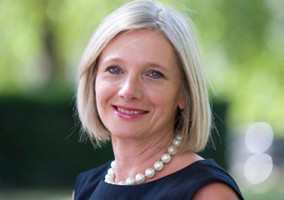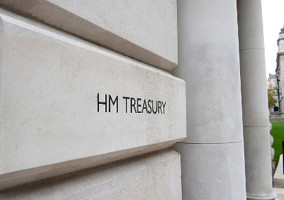Across the UK, the effects of the attempt to control the spread of the coronavirus have been felt and seen. Severe restrictions are in place as to when people can leave their homes. Normal life has, for now, been put on hold. Public gatherings and social events are banned. For most pupils schools are also shut.
People have been adjusting to a new way of living, where social interaction is no longer the norm.
People are anxious and worried. They are concerned for their health, the health of their loved ones, and the future of their jobs.
Charities are seeing an impact to their finances as a result of the crisis. Some are more affected than others, but all are facing a challenge. NCVO has estimated that over the first 12 weeks of the government’s restrictions the sector could lose at least £4.3bn. However, it also described this as a “conservative” figure that could end up being much higher. It called upon the government to support the sector and for an “urgent injection of money”.
Triple whammy
Lawrie Simanowitz, a partner at law firm Bates Wells, says that the charity sector is facing a “triple whammy”. Firstly, there is a “severe financial restriction, and restrictions on the ability to fundraise”. Secondly, many charities face increased demands for their services. Thirdly, at the same time as all this volunteering will be dropping off, particularly because volunteers tend to be older people who are currently self-isolating.
“It is a cliché, but the British public do rise to these kinds of challenges and can be very generous,” says Simanowitz. “However, I do fear that this will in no way be enough to match the financial hole that charities face.”
It is not just the public that can play a role though, and he adds that there are signs that some grantmakers are starting to “step up” and are relaxing their rules. For example, by allowing charities to move funds that have been allocated for a particular purpose to be used for other purposes.
In addition, there are new funds and new fundraising projects being launched, and umbrella bodies and other organisations are making resources free to all.
Despite these efforts, some subsectors will be harder hit by this “triple whammy” than others.
Social care charities
Charities that provide social care services will be under considerable strain due to two of the elements, outlined by Simanowitz. Dr Claire Mould is chief executive of Cintre, a charity which works with vulnerable adults with complex mental health needs. She says that as a result of coronavirus the charity will see its work increase, at the same time as its fundraising abilities are cut.
Whilst the local authorities the charity works with have been “very supportive” and statutory funding will continue, this does not represent all of the charity’s funding. It carries out fundraising to fund “value-added” services for the vulnerable people it works with, such as trips and creative activities. It had 40 fundraising activities planned for the year to mark its 40th anniversary, many of which will have to be suspended as a result of the need to limit gatherings of people.
While Mould understands the government’s measures to stop the spread of the virus and supports them, she says they make things difficult for the charity. Public events, such as the Weston-Super-Mare half marathon, will be reorganised and the charity will take part in them at a later date. However, its own events are more difficult. Firstly, the charity has a small team. Those that organised these events have other roles in the organisation, so there will be a cost in finding the time to re-organise them in the future.
“We are also aware that when we come out of the other side of the pandemic, there will be people who have been laid off and people who do not have disposable income,” Mould says. “They won’t be in a position to donate and we need to be very sensitive to this.”
This means that as society begins to get back to “normal”, it may not be possible for charities to immediately replenish their income from fundraising, no matter how much they may need to.
All these pressures mean that Cintre is having to draw on its reserves to get through this period. Mould says the management team are having to make “careful and considered decisions” on how the charity allocates funds and on what services it offers.
Some of the money that had been earmarked for developing new services will be re-allocated to existing services. Also, some of the “value-add” services the charity provides will have to be scaled back.
At the same time, Cintre is having to pay for agency staff to cover for staff that are self-isolating. She says that charities operating in social care “do not employ a surplus of staff”. Whilst very grateful to have agencies to turn to in order to fill shortages, she adds that this is an expensive option.
The government has recognised those in social care as key workers, meaning that their children can continue to attend school. Without this the sector would have faced even more staffing issues and increased costs. However, the school closures will increase staffing pressures for charities that are not covered by the key worker exemption.
For those staff that are working, Mould says that the charity is exploring the use of video technology to allow them to work remotely and to stay in contact with the individuals they support. However, this has led to additional costs. The charity has had to purchase laptops, especially as under data protection law staff cannot use personal equipment to store individual’s private details. In addition, it has had to train staff to use the technology correctly and also to ensure training is available for those it works with, during what is already a different and anxious time for many of them.
It is still too early to know how long government restrictions will be in place or what the full impact will be on society, the economy and the charity sector. All signs indicate that it will not be over quickly though, which can only increase its impact.
Advice and support
Given this, and the pressures the sector was already facing, it is perhaps unsurprising that some charities are seeking advice.
Simanowitz says his firm has received numerous queries around employment, whether that is looking at adopting agile working and working from home, or the need to make full-time staff work part time or even redundant. There have also already been initial enquiries over what happens if a charity becomes insolvent and how to make sure it winds up in an efficient and tidy manner.
Meanwhile, there is some concern over cancelling contracts, such as those with venues for cancelled events, and what a charity’s liability is.
“Some of these are issues that we have seen before, but coronavirus has put a different angle on them,” Simanowitz says. “There are other issues we are having to consider for the first time.”
Another area that charities have been seeking advice is over the cancellation of AGMs, which some are legally obliged to hold, and other important meetings, such as board meetings. Simanowitz has heard questions about whether these can be held online instead.
The Charity Commission has now issued guidance on this. It says: “Coronavirus is having a major impact on charity events and the government’s health advice may lead to some charities having no choice but to decide to cancel or postpone their AGMs and other critical meetings.
“If as trustees, you decide it is necessary to do so, you should record this decision to demonstrate good governance of your charity. This is particularly important if it is not possible to hold your AGM which may make it difficult for you to finalise your annual reports and accounts.
“Wherever possible, we would ask you to try to get your annual reports to us on time. However, where the situation impacts on the completion of annual returns and accounts, charities with an imminent filing date can call us.”
Recognising face-to-face meetings are not possible, the guidance adds: “Some charities have clauses in their governing documents that allow them to meet virtually or to use telephone facilities, so we advise trustees to check their governing document and see if they can make amendments themselves to facilitate changes as to how or when meetings are held.
“Where there is no such clause in your governing document and you decide to hold meetings over the phone or using digital solutions, we will understand but you should record this decision and that you have done this to demonstrate good governance of your charity.”
At the time of writing, the government’s promised package of support for the charity sector has not been announced. However, given the amount of money it has made available to the business sector, the individuals that Charity Finance spoke to were hopeful the package would be substantial.
Rishi Sunak, the chancellor of the exchequer, has said that charities are eligible to apply to the government’s scheme to pay 80 percent of the wages of individuals who are “furloughed” as a result of the coronavirus pandemic. He also said the sector would benefit from the business rates relief in place.
“In terms of more support for voluntary and community groups, that is something that I am actively talking to the secretary of state for communities about. Especially as we try to look after the most vulnerable in our communities, it may well be that we should increase funding for local voluntary community groups,” Sunak added.
Creative thinking
David Locke, finance director of Berkshire Schools Trust, is most concerned for charities that generate most of their income through fundraising or training activities.
Locke says that some “creative thinking” will be needed to ensure that as many charities as possible make it through this difficult period.
He would like to see the government announce that the charity sector is able to access the same level of support as businesses. However, the process to apply for loans needs to be easy and quick. If it takes too long then the money will arrive too late, he said.
He suggests loans could be supplied by a charity’s existing bank to the value of 25 per cent of annual turnover with a repayments holiday for 12 months. Government would then back the debt.
He would also like to see the government release a sum of money, perhaps £10m, to the Charity Commission for it to establish a specialist unit and a helpline for charities to receive free advice from legal, accountancy and HR professionals. He envisages this running for 12 months initially and to be reviewed after that period.
“My concern is that smaller charities may not be able to afford professional advice at the moment,” Locke says. “For some it may be a question of paying a member of staff or a bill for legal advice.”
Another suggestion he has is for larger charities to be able to help struggling smaller charities operating in the same area. If a smaller charity is facing administration, then he would like to see a system whereby the larger charity is able to take on the assets, such as people, buildings and land, rather than them be sold off cheaply. This could be on a temporary or permanent basis depending on the circumstances. Locke would like to see the government legislate to allow the larger charity to do this, but not have to take on any debts of the smaller charity.
“Some of these charities are incredibly important due to their roles and the capacity they provide,” he says. “It would be a terrible shame for the country to lose them, but for this idea to work it would need government support.”
Larger charities
Even if smaller charities and those in some sectors are going to be harder hit by the effects of the attempts to contain the pandemic, all charities regardless of their size are affected.
Girish Menon, chief executive of ActionAid UK, says that all the charity’s 200 staff are working from home. Ensuring employees are safe and well, and have access to proper support during this challenging time, is a key concern for the charity. Another priority risk is business continuity.
He says a core part of continuity is ensuring that ActionAid remains in touch with its supporters. In addition, a “real concern” is how to continue to support the charity’s programmes in the Global South. These two elements are closely linked.
“The UK is the largest fundraising country within the ActionAid federation,” Menon says. “A third of our global income comes from the UK, so any percentage point fall in income here will have a deep impact on our core mission.”
He adds that the charity has already been contacted by some supporters that have had to stop donating due to the uncertainty of their employment or because family members have lost their job. He says that he hopes that when the crisis is over, these donors will be able to resume their support again.
Another funding concern for Menon in the medium-term is grants from large trusts and foundations, as many are worried about the impact of the crisis on stock markets, and therefore on the value of their assets. He is not worried about them honouring existing commitments, but he expects some will be less willing to commit further funds during the second half of 2020 and in 2021.
During this difficult time, Menon says it is especially important to keep staff up-to-date with developments. The management team is using technology such as Microsoft Teams and sli.do to keep in contact with staff.
Sli.do is an app that allows staff to ask questions of management. Employees can both post questions themselves and vote for other people’s questions, so the managers can answer the most popular questions and compile the answers to the others into a document that can be circulated afterward.
As well keeping staff informed, Menon says it is important that the board of trustees knows what is going on. He shares all the staff updates with board members too. He also has regular one-to-one contact with the interim co-chairs of the board.
Claire Rowney, executive director of fundraising, marketing and communications at Macmillan Cancer Support, says her charity is another that is being hit by an increase in demand for advice and a drop in opportunities to fundraise.
Macmillan’s Coffee Morning fundraiser, which is its biggest event and raises around £24m each year, is still scheduled to go ahead in September, but this is under constant review. Rowney says that promotion for the event is due to start in June, but if people are still avoiding social gatherings at that point, it may feel incongruous to launch a campaign encouraging people to do the exact opposite.
One positive is that the timing of the event is flexible, as it does not require all the participants to come together at one venue, at one time. Other fundraising events do not have this flexibility and are being pushed back into the final quarter of the year. However, she adds: “We recognise that the last quarter is going to be an incredibly busy time,” she says. “We are expecting it to be very expensive from an advertising perspective at the end of the year as well.
“There’s not a lot of good news... it’s going to have a really significant impact on income.”
Even the charity’s corporate partners may not be able to contribute in the same way during the current crisis. Marks and Spencer will have to focus on keeping its shelves and delivery vans stocked to meet customer demand, while Boots will be concentrating all its efforts on ensuring its pharmacies can continue to supply medication to those that need it.
Greene King pubs usually host Macmillan May, a series of fundraising activities for its staff and customers in its pubs, but given the social distancing measures this cannot go ahead. It is one of the events that could be postponed but again it will add to the “squeeze” at the end of the year, Rowney says.
Both Macmillan and ActionAid have ceased face-to-face fundraising in order to protect the health of the fundraisers employed by their agencies.
The whole charity sector will be reeling from the effects of the pandemic for some considerable time. But so will society, which will arguably need its charitable organisations more than ever as public life resumes some normality, whenever that may be.
Funding available to charities during the pandemic
In a time of increased pressure on the charity sector, here is some of the funding being made available (at the time of going to print) for charities during the Covid-19 pandemic.
London fund
London’s City Hall and City Bridge Trust have each contributed £1m to a fund for London charities affected by coronavirus.
The emergency scheme will be coordinated by London Funders and available to organisations facing immediate financial pressures and uncertainty because of the coronavirus. These include increasing demands for services, higher staff absences, fewer volunteers and lower donations.
Full details of the new emergency support fund and how to apply are available at www.londonfunders.org.uk.
Community Foundation Tyne & Wear and Northumberland
Community Foundation Tyne & Wear and Northumberland have launched the Coronavirus Response and Recovery Fund. The fund was set up with an initial £200,000, and a further £100,000 was added by Newcastle Building Society.
Grants will be given to local charities and community organisations across Tyne & Wear and Northumberland.
National Lottery Community Fund
The National Lottery Community Fund has started reaching out to grantees, partners and other vital civil society organisations to understand how it can support communities and the sector during Covid-19. The Fund aims to share what it learns over the coming period.
The National Emergencies Trust
NET has launched a coronavirus fundraising appeal to raise funds for local charities. The British Red Cross will be managing donations.
NET will award grants and distribute money raised through a number of charitable organisations, for example local community foundations.
Wellcome Trust
The Gates Foundation and Wellcome Trust are each contributing up to $50m, and the Mastercard Impact Fund is committing up to $25m, to speed the development of and access to therapies. The Covid-19 Therapeutic Accelerator will coordinate research efforts and remove barriers to drug development.
Scottish and Northern Irish funders
SCVO has provided a summary of how Scottish funders have responded, which can be found at https://bit. ly/2xYZ1Lg.
The Scottish government has released £350m to allay the impact of the virus, including £20m to a third sector resilience fund. This is to help charities with immediate cash flow problems.
A Covid-19 community fund has also been set up in Northern Ireland.
Money Saving Expert fund
Martin Lewis, the founder of Money Saving Expert, has pledged £1m to support small charities.
In a statement, he said: “To try and help I’m going to release £1m from my personal charity fund to provide grants of £5,000 to £20,000 to small registered charities, or local arms of bigger charities, across the UK – to help with specific UK coronavirus-related poverty relief projects.”
John Lewis and Waitrose
The partnership has launched a £1m community support fund. Waitrose stores will be given these funds to support their local area based on the needs of the community.












